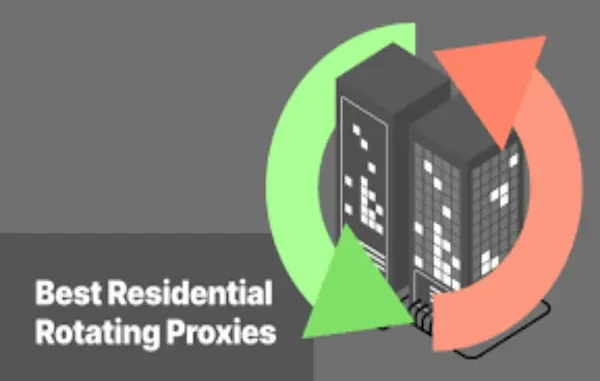
How Rotating and Residential Proxies Work
Rotating proxies change IP addresses periodically, allowing users to make multiple requests without detection. This prevents websites from identifying and blocking repeated traffic from the same IP. They are widely used in web scraping, ad verification, and automated tasks that require continuous IP rotation.
Residential proxies use IPs assigned by internet service providers (ISPs) rather than datacenter servers. Since these IPs originate from real devices, they are less likely to be flagged as proxy traffic. Many businesses prefer residential proxies for tasks requiring a high trust level, such as accessing geo-restricted content and market research.
Advantages of Rotating and Residential Proxies
Continuous IP Rotation for Anonymity
Rotating proxies automatically switch between different IPs, reducing the chances of detection. This is beneficial for large-scale data extraction and automation.
Higher Success Rates for Web Scraping
Many websites implement anti-bot measures that block repeated requests. Rotating proxies help avoid bans by using different IPs for each request, improving data collection efficiency.
Reliable and Trusted Connections
Residential proxies use real IPs, making them appear as genuine user traffic. This makes them ideal for accessing restricted websites that detect and block datacenter proxies.
Geo-Targeting and Access to Localized Content
Businesses that need access to region-specific data use residential proxies to simulate browsing from different locations. This is useful for ad verification, e-commerce, and SEO tracking.
Common Challenges When Using Proxies
Speed Limitations with Residential Proxies
Since residential proxies depend on real users’ internet connections, they may experience slower speeds compared to datacenter proxies. This can affect performance for applications requiring high-speed connections.
Cost Differences Between Proxy Types
Rotating proxies and residential proxies are often more expensive than standard datacenter proxies. The higher cost is due to their advanced features, such as better anonymity and reduced risk of detection.
Risk of IP Bans
Although rotating proxies reduce the risk of detection, some websites still track behavioral patterns. Users should combine proxies with request throttling and randomization techniques to minimize detection.
Practical Applications of Rotating and Residential Proxies
Large-Scale Web Scraping
Rotating proxies allow businesses to extract data from websites without triggering anti-bot mechanisms. They distribute requests across multiple IPs, ensuring uninterrupted access to public information.
Ad Verification Across Multiple Locations
Marketers use residential proxies to verify how digital ads appear in different regions. This helps ensure proper placement and detect fraudulent activities in online advertising.
Managing Multiple Social Media Accounts
Many platforms limit the number of accounts per IP. Residential proxies help users manage multiple accounts without triggering account restrictions or bans.
Competitive Price Monitoring
E-commerce businesses track competitors’ pricing in different locations using residential proxies. This allows companies to adjust pricing strategies based on market trends.
Selecting the Right Proxy Provider
Reliable IP Pool and Rotation System
A good provider should offer a large pool of clean, frequently updated IPs. This ensures a lower chance of bans and uninterrupted browsing.
Performance and Speed Considerations
Rotating and residential proxies should maintain low latency. Testing different providers helps determine which offers the best balance of speed and anonymity.
Customer Support and Troubleshooting Assistance
Providers with responsive customer service help users resolve connection issues and maintain a smooth proxy experience.
Pricing and Subscription Flexibility
Users should evaluate cost based on usage needs. Some providers offer pay-as-you-go plans, while others provide monthly subscriptions tailored to different levels of data consumption.
Best Practices for Using Rotating and Residential Proxies
Implementing Request Delays to Avoid Detection
Sending too many requests in a short time can lead to blocks. Using rate-limiting techniques prevents triggering website security mechanisms.
Combining Proxies with CAPTCHA Solvers
Websites often require CAPTCHA verification for suspicious traffic. Automating CAPTCHA solving helps maintain uninterrupted access while using proxies.
Monitoring Proxy Performance and Adjusting Settings
Testing different proxy configurations helps optimize speed and reliability. Users can switch between proxy types depending on specific needs.
Avoiding Misuse and Ensuring Ethical Usage
Using proxies responsibly prevents IP bans and maintains long-term access to online services. Ethical data collection ensures compliance with website policies and legal guidelines.
Making the Most of Rotating and Residential Proxies
The best rotating proxies and residential proxies provide secure and flexible access to online content. Businesses using these proxies benefit from improved anonymity, reliable connections, and better success rates in web scraping. Choosing a provider with high-quality IPs, strong customer support, and good performance ensures an optimal experience.
Leave a Reply